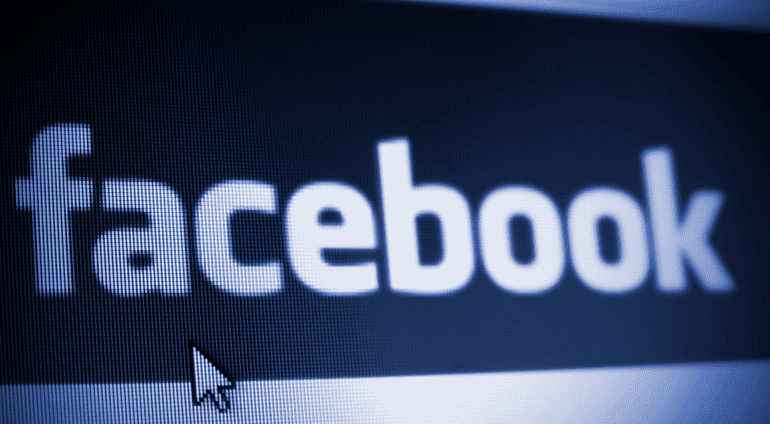7:06 AM – Feb 18th, 2021. Prior to this time, media in Australia was at a relatively calm state. Aside from your usual political drama and our community making fun of America for something we’re not involved in; we were all generally happy with the place we were at.
And then… all hell broke loose.
Facebooks ‘controversial’ decision
On Thursday, in the early morning, a pretty interesting topic was being discussed in the news. Facebook said that it won’t let publishers in Australia post their content on its site. What does this mean? It means that people, inside of Australia, will not be able to view or share news and other types of articles from outlets there.
This decision came after Australia introduced a law that required big tech media companies – especially Facebook and Google – to pay publishers for the privilege of displaying content from third parties on their websites. However, Facebook did say that they’ll allow the display of important information such as communication of authorities and the COVID-19 information centre.
Facebook starts a political fight
Despite their different tactics and work ethics, Facebook and Google have both spent months negotiating with each other against the proposed “code”.
Both digital giants argued that they drive a lot of traffic to different news outlets that would otherwise be unnoticed.
They fundamentally believe that they should not have to pay news outlets large sums of money for content (to amplify this, the deals that Google have struck with publishers are reported in the tens of millions, no where near the billion-dollar requests that were coming in from media company bosses when negotiations on the law started).
While Google users rely a lot on getting up-to-date news, Facebooks users don’t necessarily go to the app to primarily consume news.
Regardless, Facebook has, for years, been criticised for its role in facilitating the sharing of dangerous political content, fake news and misinformation.
If trusted news sources are removed from its platform, do they become less trusted and lose the audience that they so heavily rely on to get advertisers?
No doubt about it, these are the types of questions that Facebook and society as a whole will keep thinking about throughout the coming weeks.
So… what happens now?
Facebook stated that, last year, they helped Australian publications drive site traffic worth a whopping 407 million Australian dollars. Now that’s a lot of moolah.
The company also added that it proposed to invest million of dollars into the Australian news economy in hopes to bring Facebook News – Facebooks product for news where it pays publishers – to the country. However, their proposal was ignored by the government:
But these proposals were overlooked. Instead, we are left with a choice of either removing news entirely or accepting a system that lets publishers charge us for as much content as they want at a price with no clear limits. Unfortunately, no business can operate that way.
The news only accounts for four percent of posts on Facebook, so realistically, the company isn’t really losing out on much. However, the effects of this move are a bit striking. Facebook had apparently used A.I learning instead of blacklisting publishers, and that broke the algorithm.
Australia retaliates
Despite being new, the news ban has already stricken country-wide confusion and criticism. Fire and emergency services, domestic violence charities, state health agencies and other organizations admitted to being affected by the restrictions, this ensued an outrage amongst those who said Facebook was “restricting access to vital information”. In a comforting response, the company has claimed that it will “reverse pages inadvertently impacted by its move”.
On his own Facebook page, Australian Prime Minister Scott Morrison (who seemed to not be affected by the restrictions) wrote:
These actions will only confirm the concerns that an increasing number of countries are expressing about the behaviour of Big Tech companies who think they are bigger than governments and that the rules should not apply to them. They may be changing the world, but that doesn’t mean they run it.
Officials said the move came without any prior warning from Facebook.
“Facebook was wrong,” Josh Frydenberg told reporters at a press conference on Thursday. Frydenberg has been a key communicator between the government and the tech firms regarding the issue, having met earlier with the CEO of Facebook, Mark Zuckerberg, to discuss the proposed legislation.
Facebook’s actions were unnecessary, they were heavy-handed, and they will damage its reputation here in Australia.
Effects outside of Australia
Because Australian publications won’t be able to post news up on Facebooks site, the rest of the world also can’t see any news coming from Australia. This ban on news posts could also promote blogs and articles that could publish unofficial/unverified news which would lead to a spread of misinformation.
There is hope, however, Josh Frydenberg – A member of the Parliament – said that he had a conversation with Mark Zuckerberg and agreed to continue our conversation to try to find a pathway forward. Hopefully, they will come to an agreement soon enough and the users of Facebook won’t have to suffer from this bizarre clash between large tech corporations and the government.
A “gang-up” on Facebook
Currently, the Federal Government is rallying support from foreign leaders to join the fight against Facebook after the news ban.
Scott Morrison raised the idea with Indian Prime Minister, Narendra Modi, to prevent the social media company from bullying governments.
He is expected to do the same with other world leaders soon.
What’s with the new law?
This backlash is growing outside of Australia now, with politicians in both the UK and Europe now considering introducing new laws that are similar to those being put in place in by Australia.
Henry Faure Walker, deputy chairman of the UK News Media Association which advocates media companies, said Facebook’s ban in Australia showed exactly why new laws were needed.
A blanket ban on news during a global pandemic is a classic example of a monopoly power being the schoolyard bully, trying to protect its dominant position with scant regard for the citizens and customers it supposedly serves. Facebook’s actions in Australia demonstrate precisely why we need jurisdictions across the globe, including the UK, to coordinate to deliver robust regulation to create a truly level playing field between the tech giants and news publishers
Facebook recently struck a financial deal with publishers and different news outlets in the UK by creating a “Facebook News tab” on its mobile app.
This licensing agreement allows for Facebook to use headlines and article previews from the news outlets they’ve committed deals with.
British MP Julian Knight supported the Australian Government’s move to tighten the laws on tech giants.
Australia’s democratically elected government is democratically elected. And they have the right to make laws and legislation. And it’s… it’s really disrespecting democracy to act in this fashion. It is one of the most idiotic but also deeply disturbing corporate moves of our lifetimes.
How are the users of Facebook taking this?
The general financial impact for Facebook will be relatively small, but there are speculations that Facebooks’ move could harshly backfire.
Apart from social media users criticising Facebook for acting “anti-democratically”, on Thursday, a large amount of Facebook users turned to Twitter with “delete Facebook” and #BoycottZuckerberg hashtags.
Other users stated that they removed Facebook from their phones as a retaliation to Facebook blocking health and safety pages.
Facebook was condemned by Josh Frydenberg saying that it just proved “the immense market power of these digital giants”.
However, even those with this immense amount of power can face harsh damage to their reputation that, if stays consistent, becomes hard to repair.
According to the University of Canberra’s digital news report in 2020, roughly 39% of Australians use Facebook for general news and about 49% use Facebook for news about COVID-19.
This report also found that for Gen Y and Z, local social media new or online groups are the most popular way to access news for their general area.
If the news ban from Facebook is not lifted, news publishers will have to find platforms or new ways to reach wider audiences.
But will Facebook lose crucial audiences and advertisers as well?
Only time will tell…







